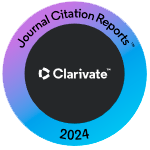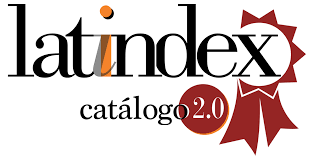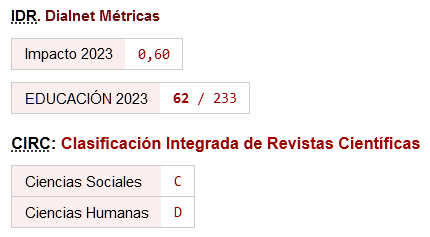Use of network technologies in the professional activities of adult education teachers in Ukraine
DOI:
https://doi.org/10.46661/ijeri.6380Keywords:
Network technologies, Teachers, network technologies, teachers, adult education, UkraineAbstract
The use of network technologies is fundamental to all professional activities in the field of education in the society of the 21st century. The field of adult education has also been influenced by this trend and network technologies have been acknowledged as basic tools for the improvement of learning opportunities and for the development of the teaching-learning activities themselves. Hence, this paper aims to know about the use of network technologies in professional activities of teachers in the field of adult education in four Ukrainian pedagogical institutions. For this purpose, a questionnaire was passed on about the use of network technologies in the professional activities of teachers in these institutions. Among the main results, it is worth noting that the use of network technologies is relevant in the professional activity of teachers regardless of their age, as well as the widespread use of the computer and the Windows operating system for professional activity. Among the Microsoft applications, Word stands out, used by the entire sample, followed by Power Point and Excel, both of which received more than two thirds of the responses. Google Drive stands out for cloud storage, Viber and Facebook Messenger predominate in messaging services and gmail.com and ukr.net are mostly used for email services, the latter being a specific Ukrainian email service. In conclusion, it is suggested that teachers be trained in a wider range of network technologies to improve their professional activity.
Downloads
References
Abdelrahman, M. A., Ahmed, Y. A., Al-Shedani, Z., & Mohammed Sulaiman, A. A. (2019). An Investigation of Faculty Members’ Beliefs and Barriers to Successful ICT Integration into Teaching at Sultan Qaboos University. I-Manager's Journal of Educational Technology, 16(2), 50-61. DOI: http://dx.doi.org/10.26634/jet.16.2.16240
Belando Montoro, M. R. (2014). Formación permanente del profesorado. Algunos recursos TICs para la docencia universitaria. Revista Iberoamericana de Educación, 65(1), 1-11. DOI: https://doi.org/10.35362/rie651324
Belando-Montoro, M. R. & Tavárez Marzán, M. T. (2017). El perfil del docente en la educación universitaria de República Dominicana. Experiencia de una colaboración Erasmus Mundus entre la UCM y la UASD. International Journal of Educational Research and Innovation (IJERI), 7, 164-185. https://www.upo.es/revistas/index.php/IJERI/article/view/2323
Bikov, V. (2010). Modern tasks of informatization of education [Сучасні завдання інформатизації освіти]. Information Technology and Teaching Aids/ Інформаційні технології і засоби навчання, 1 (15). http://journal.iitta.gov.ua/index.php/itlt.
Bykov, V. (2019). Innovations in the organization of research and development in the field of information and communication technologies in education in the light of the challenges of the 21st century [Інновації в організації досліджень та розробок у галузі інформаційно-комунікаційних технологій в освіті у світлі викликів xxi сторіччя].
Actual problems of psychology: a collection of scientific works of the Institute of Psychology named after G.S. Kostyuk of the National Academy of Pedagogical Sciences of Ukraine/Актуальні проблеми психології: збірник наукових праць Інституту психології імені Г.С. Костюка НАПН України, 8(10), 55-74.
Bilaii, Y. (2018). Methodical system of preparation of future teachers of mathematics and informatics for use of distance learning technologies [Методична система підготовки майбутніх учителів математики та інформатики до використання технологій дистанційного навчання]. Thesis for a Candidate Degree in Pedagogical Sciences, specialty 13.00.02 - Theory and Methods of Teaching (Informatics). National Pedagogical University named after M.P. Drahomanov.
Glushkov, V. (1987). Basics of paperless computer science. Moscow: The Science.
Kotkova, V. & Perminova, L. (2019). Study of Kherson state university students and teachers’ attitude to the using of ICT. Information Technologies and Learning Tools, 72(4), 194-203. https://journal.iitta.gov.ua/index.php/itlt/article/view/2493
Kunda, D., Chembe, C., & Mukupa, G. (2018). Factors that influence Zambian higher education lecturer's attitude towards integrating ICTs in teaching and research. Journal of Technology and Science Education, 8(4), 360-384. DOI: https://doi.org/10.3926/jotse.338
Laabidi, Y. & Laabidi, H. (2016). Barriers Affecting Successful Integration of ICT in Moroccan Universities. Journal of English Language Teaching and Linguistics, 1(3), 203-214. http://dx.doi.org/10.21462/jeltl.v1i3.29
López-Gil, M., & Bernal Bravo, C. (2018). El perfil del profesorado en la Sociedad Red: reflexiones sobre las competencia digital de los y las estudiantes en Educación de la Universidad de Cádiz. IJERI: International Journal of Educational Research and Innovation, 11, 83-100. https://www.upo.es/revistas/index.php/IJERI/article/view/3265
Muslem, A., Yusuf, Y. Q. & Juliana, R. (2018). Perceptions and Barriers to ICT Use among English Teachers in Indonesia. The Journal of Teaching English with Technology, 18(1), 3-23.
Myronchuk, N. (2020). Information and communication technologies as a means for the educational process actors’ self-organization. Information Technologies and Learning Tools, 75 (1), 202-211. https://journal.iitta.gov.ua/index.php/itlt/article/view/2537
Sereda, I., Savinova, N., Stelmah, N. & Biliuk, O. (2019). Levels of information and communication competence Formation for educators in general educational Institutions. Information Technologies and Learning Tools, 74(6), 56-70.
https://journal.iitta.gov.ua/index.php/itlt/article/view/2984
UNESCO (2016). 3rd Global Report on Adult Learning and Education: The Impact of Adult Learning and Education on Health and Well-Being, Employment and the Labour Market, and Social, Civic and Community Life. Hamburg: UNESCO Institute for Lifelong Learning.
Vázquez-Cano, E., Gómez-Galán, J., Infante-Moro, A., & López-Meneses, E. (2020). Incidence of a Non-Sustainability Use of Technology on Students’ Reading Performance in Pisa. Sustainability, 12(2), 749. https://doi.org/10.3390/su12020749
Vázquez-Cano, E., León-Urrutia, M., Parra-González, M.E. & López-Meneses, E. (2020). Analysis of Interpersonal Competences in the Use of ICT in the Spanish University Context. Sustainability 12 (2), 476. https://doi.org/10.3390/su12020476
Downloads
Published
How to Cite
Issue
Section
License
Copyright (c) 2022 Leila Sultanova, María R. Belando-Montoro

This work is licensed under a Creative Commons Attribution-NonCommercial-NoDerivatives 4.0 International License.











